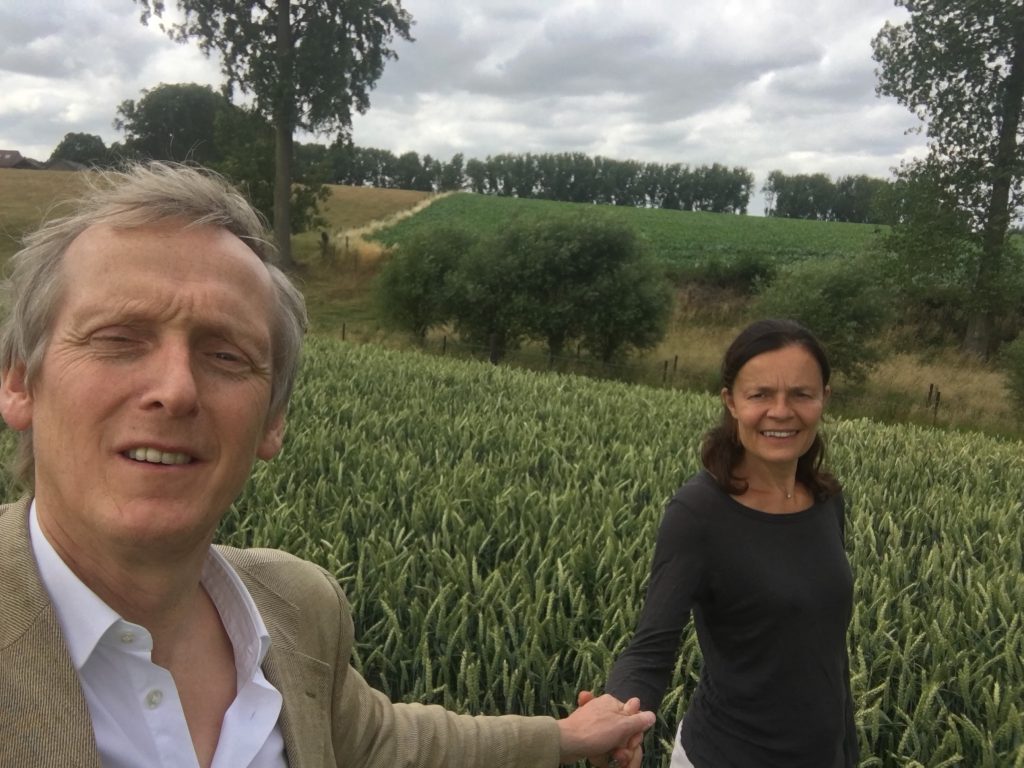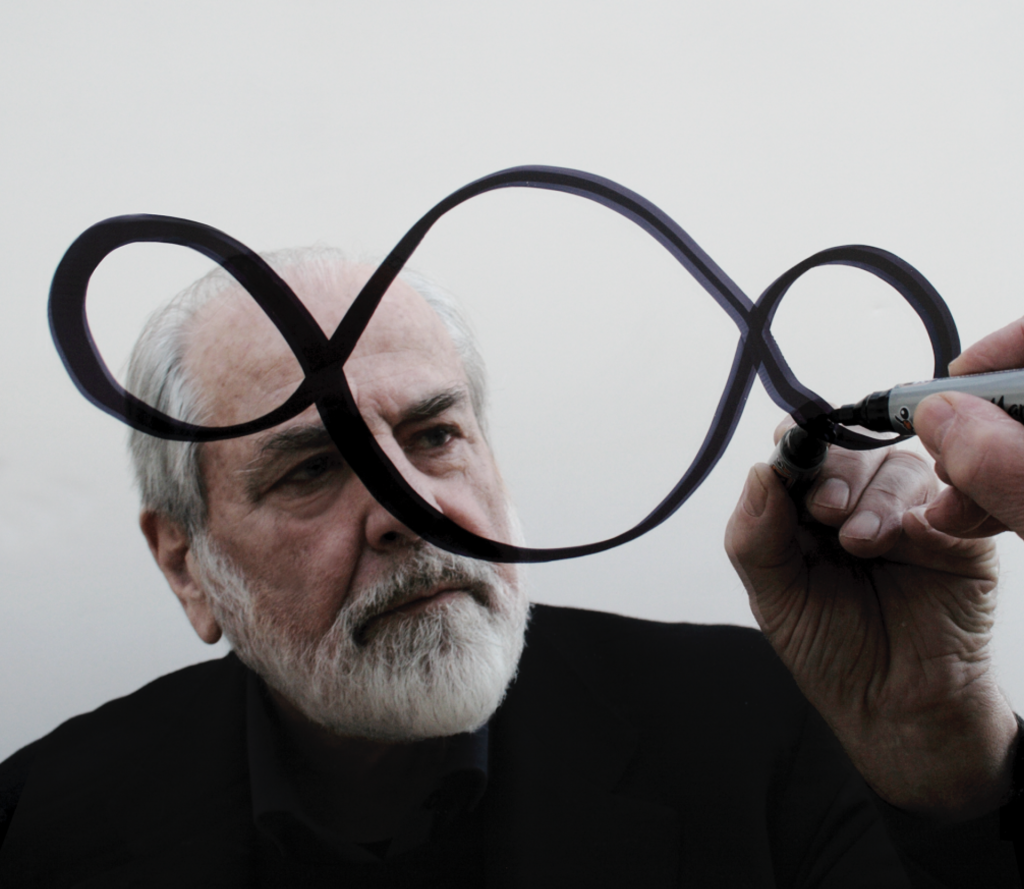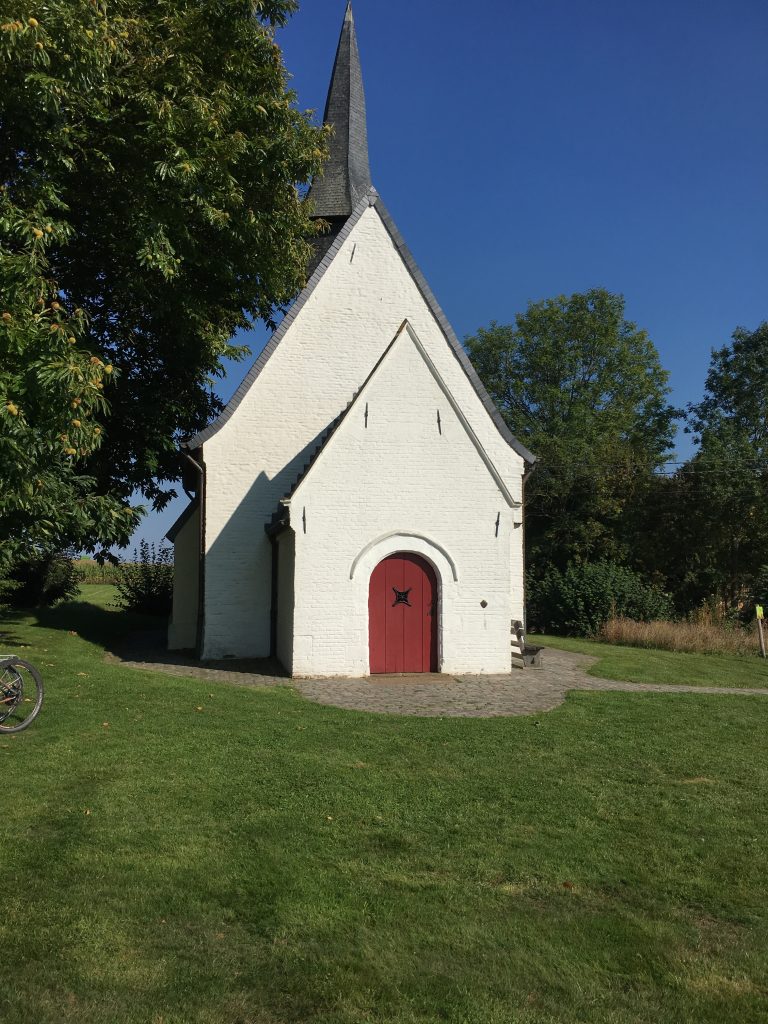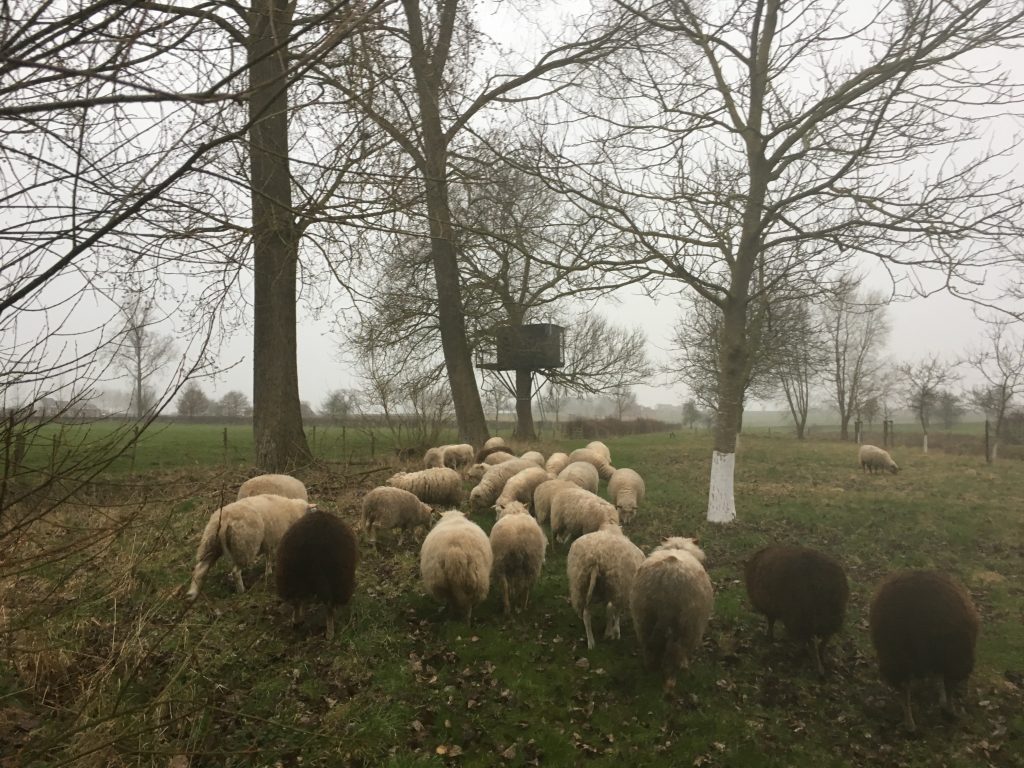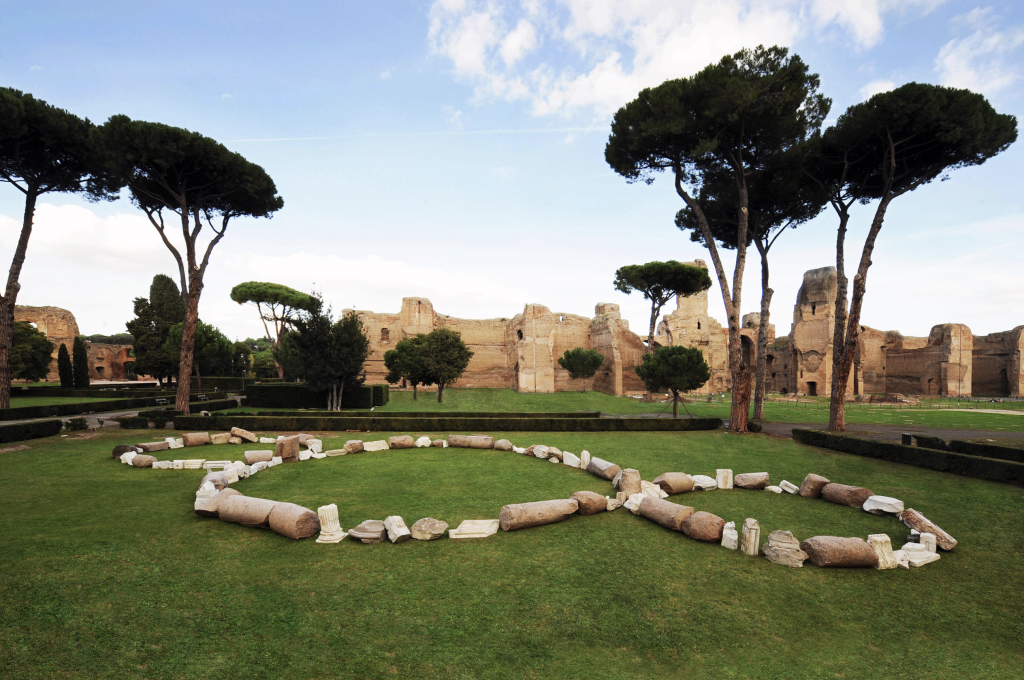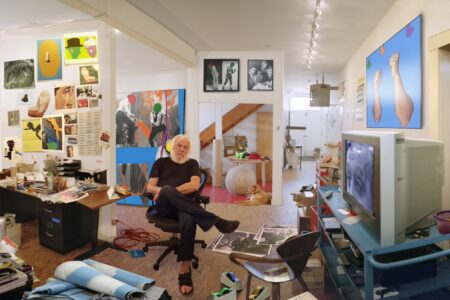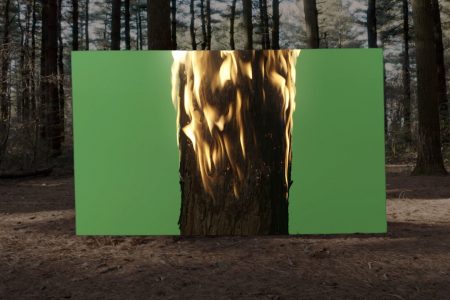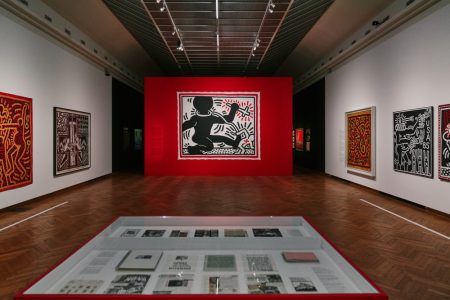Paul Dujardin: The Virtuosity of the Conscience
The path between BOZAR and Gooik leads to the Third Paradise, in a landscape that evokes the Primitive Dutch canvases.
For almost 20 years, the director of BOZAR, Paul Dujardin, has been coordinating the Palais des Beaux-Arts in Brussels, where artistic practices intersect, between music, art, architecture, cinema, dance, and performance. Today, when the large performance halls lie empty, it reminds us of the importance of solidarity, in particular within the cultural world which acts as a mainstay of the crisis state, by opening its doors to “homeless” artists. The same goes for his castle-farm in Gooik, which he intends to make a shared space. He and his wife Lydia, both very “green-thumbed”, are devoting themselves to setting up in this space a major work of Land Art by Italian artist Michelangelo Pistoletto, composed of three large circles of trees, symbol of the “Terzo Paradiso”, a union between man and his environment.
TLmag: At a time when we are experiencing an irreversible change in our society, what is your perspective on the pandemic situation?
Paul Dujardin (PD): I do not think we will ever return to the situation we had before this pandemic, which has made us realise the importance of social ties and of empathy. The experience of confinement enabled me to appreciate and revive the house in an essential way, both as a place of protection and of reflection, while realising the importance of cultural sensitivity. The question will not be one of only undertaking change and bringing about an economic recovery, but also of redefining society and showing more intergenerational solidarity. I believe that the human encounter will occur as it did, following the Second World War or the more recent fall of the Berlin Wall. Post-war laws required citizens to harbour those less fortunate than themselves. We are fortunate to live in a cosmopolitan Belgian society with a strong European identity. This year, we are also celebrating the 70th anniversary of the Schuman Declaration, which laid the foundations of the European Union. This mutual assistance can enable us to confront poverty while enhancing our democratic values. As the director of a cultural institution like BOZAR, I feel that we must move ahead, and show solidarity and a sense of welcome, by making our spaces available to creators. The Palais des Beaux-Arts that we occupy in Brussels was designed by Victor Horta and built during the Spanish flu epidemic following the First World War. The mental health that requires art and culture is just as important as physical health, and is all about ethics and the ability to “live together” and face challenges like the one we are going through.
TLmag: How are you going to reschedule BOZAR, a major exhibition and concert venue where thousands of people congregate each week, considering this extremely uncertain situation?
PD: Rescheduling BOZAR is a real challenge. We reopened on May 19 with “Keith Haring”, “Mondo Cane”, “Vjenceslav Richter” and the new exhibition by Belgian artist Jacqueline Mesmaeker, “Ah, quelle aventure!” .BOZAR brings together all the artistic disciplines, each of which requires specific measures. Our theme for next autumn is the very relevant “Art & Well-Being”, with three flagship exhibitions: “Danser Brut” (September 24th, 2020 until January 10th, 2021); “The Gallery of the Futures” (October 8th, 2020 until April 18th, 2021); and “Hotel Beethoven” (October 13th, 2020 until January 17th, 2021). Since confinement began, we have been working very actively on a reopening plan that complies with the health measures recommended by the government, while ensuring the safety and well-being of visitors. This entails a limited number of visitors per time slot, online ticketing, controlling access to changing rooms, setting up a disinfection system for public mediation tools and spaces, all in order to accommodate visitors safely and confidently. We are also busy rethinking our classical music programming taking into account the new health standards in force: favouring small groups over large, and outdoor events, thanks to the space constructed by Brussels landscape architect Bas Smets, which will take place as part of BOZAR Open Air. The pandemic has also accelerated the establishment of a new online artistic platform, BOZAR@Home. Digital content will not, however, replace the physical presence of the public, art, and artists. BOZAR remains above all a place where art and culture meet.
TLmag: From BOZAR, let’s travel to “Terzo Paradiso” in Gooik, where three large circles of trees symbolise the union of man and nature.
PD: Nature against us forces us to change and adapt. We are indeed faced with a revolution of nature against man, the so-called Anthropocene era. To me, the period of the humanists was the richest in teaching and sharing. I admire Albrecht Dürer, who changed culture by giving the artist a strong identity, using engraving and printing to spread his ideas, which contemporary artists have only duplicated since. I refer here to Neil MacGregor, former director of the British Museum and current co-founder of the Humboldt Forum in Berlin which aims to unify five museums, including the museums of ethnography and of Asian Art. MacGregor defines Germany through Dürer, an iconic Renaissance artist who was a national and international hero and star. His legacy is seen in contemporary designers such as Icelandic-Danish Olafur Eliasson, who will soon realise a project at BOZAR within the framework of the German Presidency of the EU Council, but also the Italian Michelangelo Pistoletto, who through his humanist vision, denouncing the globalised world, artifice and technology, narrates a millennial thought, placing man at the centre of the ecosystem.
When I was 18, I had the chance to take an Interrail trip to Italy with a friend, now a gallery owner, Jan Mot. On the Saint Francis route, we stopped in Siena during the Palio. One work of art at Siena’s town hall struck me in particular, already reflecting modern Europe; it remains etched in my memory. Painted by Ambrogio Lorenzetti during the time of the Republic of Siena, the fresco very aptly represents the allegory of good and bad government in times of pandemic. Considered in the context of the first half of the 14th century, it illustrates the concept of the city-state, of the battle against the cities, and of the search for a new serenity of the people, of “living together”. I already see here a direct link to “arte povera”, an expression first used in 1967 by Italian art critic Germano Celant, who recently left us. The eponymous artistic movement advocated, among others, by Alighiero Boetti, Luciano Fabro, Giuseppe Penone and Michelangelo Pistoletto, bases itself on productions that separate art and man from the achievements of culture. I like this strong character of the protagonist artist, whether at BOZAR, or the Gooik site. In the field of music, I find this radical and monumental dimension in Karlheinz Stockhausen and Luciano Berio. I am pleased that my wife Lydia and I have been to meet Pistoletto and see his Citadellarte, a city dedicated to culture, where the visionary artist lives in a setting where education and connectivity between people are incredible. He himself had COVID-19, from which he fortunately recovered.
TLmag: Using old maps, including that of Ferraris from the 18th century, you have drawn a unique territory around your Gooik castle-farm, in Pajottenland, Flemish Brabant. Tell us about the journey towards the site’s original form, in order to recreate its individual identity, with its avenue of trees, its church, its orchard, its farm … and the “Terzo Paradiso” of Pistoletto. How did this human adventure and humanist quest linked to the earth begin?
PD: Several years ago, I was looking for a place of silence outside Brussels, for one of my daughters who could not stand the urban noise and environment. In Gooik, I discovered farmlands almost untouched by civilization. By giving new life to its ponds, icehouses, cellars, physical structures, and the energies of the land, I feel as if I have reached a state of grace that I would call “Narrative Purity”. By being in Gooik, we become aware of returning to a purity of origins through a connection with nature. We advocate for diversity, but we must defend it as much on a cultural level as on an environmental level. These lands belonged to a community that lived like Quakers. I believe that the place does not belong to me and that everything I plant there will fuel the life of a future community. My wife Lydia and I chose to invite Pistoletto to recreate a “forest”, which counterbalances the very cosmopolitan city of Brussels where we work every day; Lydia as an alderman for culture, education and social cohesion in one of the municipalities of the Brussels Region, and I at BOZAR. We each have four children, which also requires space.
TLmag: Will we, as predicted by Michelangelo Pistoletto, who will inaugurate his installation at your mansion next October, definitely enter this Third Paradise?
PD: Fortunately, Pistoletto is doing very well after catching the coronavirus. I try every year to visit him in Biella, where he lives, to better learn and understand a cooperative way of life. Pistoletto has mastered circular philosophy, permanence in impermanence, an eco-activism where art and nature are in perfect harmony, along with science and the landscape. To celebrate the Third Paradise, every year, in mid-October, we organise a big party in Gooik: it’s the time to plant and pick, a fundamental autumn period that we can find in the canvases of Flemish painters such as Pieter Bruegel the Elder but also in the Japanese calendar of the 24 seasons. The land art installation is open to the public; everyone can enjoy it. 2020 will be a special year, in the presence of the “maestro”.
TLmag: Do you believe the change we have been talking about throughout this interview must be so radical and urgent? What do you advocate for the future, whether in art, culture, society, economy, or politics? Will we return to Plato’s statement in Socrates’ Apology: “All I know is that I know nothing, while the others think they know what they don’t know.”
PD: Social change will not upset creation. The artists will show us a way and explain their vision for the future. We seek to create and defend an ideal to find narratives that allow us to discover new paths. Faced with Cartesianism, we need Pistoletto’s circular thought and experimental and artistic research to feed the pace of transformation. The globalised economy requires the development of new strategies. There are limitations to the system and to overconsumption. Science and art advance society, not the political world. The learning and knowledge of scientists and artists enable a new renaissance. The agenda for 2020-2050 must take into account the realities of wealth distribution, philanthropy, local and global culture. At BOZAR, we want to reflect on democracy and the future of Europe. There may be BOZAR Narrative, BOZAR Together. Next December 18, we will celebrate “Rebirth Day”, as we do each year in the sculpture hall, which serves as an agora.
TLmag: If we cultivate our garden, will we have a chance to relearn how to live and be happy? The director of Cittadellarte, Paolo Naldini, speaks of a “Pan-Demopraxy”, within which everyone would be held responsible for their daily actions.
PD: Politicians lack scenarios for global problems like migration, super diversity, pandemics, the financial and energy crisis, terrorism. We must believe in and commit to a democratic and ethical Europe united through ideas, stories, art and culture. Europeans are capable, with our heritage, of rejuvenating and innovating. If we look towards the past, we will head down the path to disaster. We must move forward and be held accountable for our own actions.
TLmag: You want to show generosity and sharing by opening your castle-farm to everyone, but what steps must still be taken before reaching this objective of a cooperative eco-site?
PD: The accumulation of wealth depends above all on the creation of value. Culture gives access to a quality of life, to a quality of exchanges, to peace and prosperity. It can help celebrate freedom, individuality, community, and its complexity while defending a state in democracy. I believe in the alliance of the private and the public, and in the strength of teamwork.
TLmag: Heaven is a bit like a ladder of life, you must be able to earn it. Who do you think will be the lucky elect?
PD: For me, the notion of heaven is earthly, it is a place that is not Christian. I work in my heaven in synergy with nature, in search of humanity and sharing. I hope that I will find there the virtuosity of the conscience, so I can pass it on it to as many as possible.
This article was first published in TLmag’s Spring / Summer 2020 publication “TLmag 33: A New Age of Humanism”.
